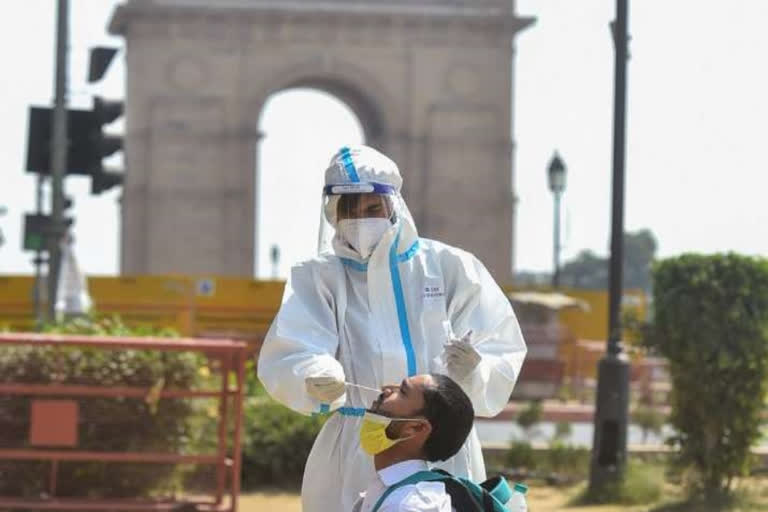New Delhi: As much as 24.1 per cent of Indians were exposed to SARS-CoV-2, the latest serosurvey conducted by the Indian Council of Medical Research (ICMR) has revealed.
The revelation, however, contradicts the Union Health Ministry’s claim that less than 2 per cent of the Indian population got infected with COVID-19.
The latest serosurvey, the third of its kind, said for every COVID-19 case detected, there were 27 infections by December 2020. In addition, nearly one in four individuals aged above 10 years from the general population as well as healthcare workers (HCWs) in India were exposed to SARS-CoV-2.
"Seroprevalence was higher in urban areas as compared to rural areas. By December 2020, 25.6 per cent healthcare workers had evidence of SARS-CoV-2 infection," the survey said.
Also read: Diabetes And The Second Wave Of COVID-19
Under serosurvey, blood samples were collected from the general population and tested for IgG antibodies. If a person is IgG positive, it means they got exposed to SARS-CoV-2 sometime in the past.
Earlier serosurveys in India revealed SARS-CoV-2 seroprevalence of 0.73 per cent during May-June, 2020 and 7.1 percent during August-September 2020.
"We conducted the third serosurvey during December 2020 and January 2021 to estimate the seroprevalence of SARS-CoV-2 infection among general population and healthcare workers in India,” the ICMR said.
The serosurvey was conducted in the same 70 districts selected for the first and second surveys from 21 states across India. From each district, at least 400 individuals aged above 10 years from the general population and 100 HCWs from sub-district level health facilities were enrolled.
Population-based serosurveys are recommended to estimate the proportion of the population already infected with SARS-CoV-2. Repeated cross-sectional serosurveys conducted in the same geographical location provide estimates to monitor trends over a period of time.
Also read: Seven percent of Covid vaccine doses wasted in Rajasthan
As a higher proportion of the rural population is susceptible to infection and considering limited healthcare facilities in rural areas, especially oxygen beds, the survey suggested that the elderly population in the rural areas may be prioritized for COVID-19 vaccination.
Reacting to the survey, Dr Sunila Garg, senior advisor, ICMR, and a renowned health expert said that apart from the fact that 24.1 per cent of the general population in India was exposed to SARS-CoV-2, a majority of the remaining population are highly susceptible to COVID-19.
"The way the pandemic has spread across the country, especially in rural areas, many people have already been infected or created antibodies,” Dr Garg said.
She said another serosurvey could further tell the extent of the exposure to the virus.



